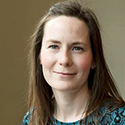

 The legal industry has not traditionally been at the cutting edge of diversity and inclusion (D&I), but the industry has made strides forward in recent years. Statistics from the Solicitor’s Regulation Authority (SRA) revealed that in 1970 just 10% of new entrants were female while, in the mid-1990s, only 2% of solicitors identified as BAME. However, as of March 2020, 49% of solicitors are women, while 21% are BAME.
The legal industry has not traditionally been at the cutting edge of diversity and inclusion (D&I), but the industry has made strides forward in recent years. Statistics from the Solicitor’s Regulation Authority (SRA) revealed that in 1970 just 10% of new entrants were female while, in the mid-1990s, only 2% of solicitors identified as BAME. However, as of March 2020, 49% of solicitors are women, while 21% are BAME.
Inclusivity in the legal sector is an area of particular focus for Sharon Glynn (pictured), a senior development underwriter, bond & speciality insurance, for Travelers Europe. A qualified solicitor who works closely with brokers and insureds to ensure that they receive insurance solutions tailored to their specific needs, Glynn is also co-chair of the Women’s Diversity Network at Travelers and a committee member of the Gender Inclusion Network.
Sharing an overview of where the legal profession currently stands, she noted the social mobility pledge to which 500 organisations have signed up globally and that a number of these signatories are law firms. The Law Society has several schemes it is running to encourage movement in this area, from the implementation of a Diversity Access Scheme, which provides support to those facing financial hurdles, to a Social Mobility Ambassadors scheme.
“In relation to inclusive practices generally, law firms are getting better,” Glynn said. “In the Stonewall top employers list, 15 law firms appear in the top 100, with Pinsent Masons appearing in the top five. Increasingly, law firms are well represented in diversity and inclusion awards. Allen & Overy now has five new regional D&I partners across their network, in addition to their social mobility working group, and they are not alone.”
Throughout her own career, Glynn has seen the sector make strides forward towards inclusivity as, she said, more people are talking about the issue and people now expect to see lawyers who look more like them representing them. However, she noted there are still several factors responsible for the lack of mobility, which can be broadly separated into financial and societal barriers.
The core financial impedances which are influencing the sector range from the fees required to attend university or a law college, to the inability of those facing financial difficulties to be able to afford unpaid legal work experience which might help support their applications. There are several social obstacles that applicants from disadvantaged backgrounds might face; from the feeling that they won’t fit in, to not having access to influential contacts.
Glynn noted that having strong D&I practices in place makes good business sense, as well as being the right thing to do, and the latest statistics released by McKinsey & Company have revealed that the business case for D&I is stronger than ever. In the latest of McKinsey’s ‘Diversity Wins’ reports, it was noted that companies in the top quartile for gender diversity on executive teams were 25% more likely to have above-average profitability than companies in the fourth quartile—up from 21% in 2017 and 15% in 2014.
Being co-chair of the Women’s Diversity Network at Travelers has allowed Glynn to get involved with a number of initiatives, including supporting Dalligio RugbyWorks by running a career taster day for them.
“Dallaglio RugbyWorks works towards helping as many excluded young people as possible achieve sustained education, employment or training. This is an organisation empowering young people towards achievement of their goals” she said. “Eighty-eight per cent (88%) of their tracked, Year 12 students remain in education, employment or training 12 months after leaving school.”
There are many ways in which inclusivity can be supported, Glynn said, and she has found several opportunities to do so, from participating in the Lloyd’s Community Programme to volunteering in the Abacus Family Financial Literacy Project.
“Equality and inclusion is not a zero sum game,” she said. “If we create opportunities for everyone to develop and be their best, then everyone benefits; the individuals feel valued and supported and the company benefits from a happy and successful workforce.
“We know that certain groups are not getting equal access to these opportunities so it is right that we do what we can to level the playing field, but we need everyone to see the benefit of equal opportunities and to get behind the initiatives. If we all do even a small bit to create inclusive workplaces then big change will be inevitable.”
Find out more about the range of legal sector insurance products offered by Travelers by visiting their website.
